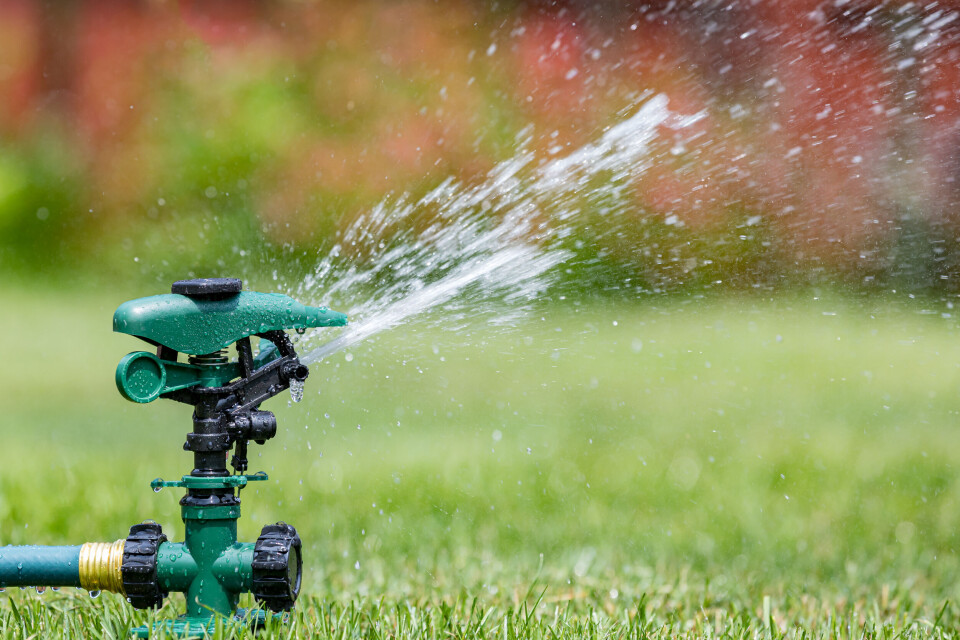-
Canal du Midi closed to boats until March due to low water levels
Extended drought in the south of France means boating only permitted under exceptional circumstances
-
Another French village bans drinking water for vulnerable people
Official advice has been issued on who is affected by the ban and why
-
Water restrictions extended in southern French department as drought continues
Pyrénées-Orientales remains in a state of drought as groundwater levels continue to fall
What happens if you break French water restriction rules by accident?
With rules to combat drought in place in many parts of the country, we look at what happens if you water your garden when you are not supposed to

France is facing drought issues after a series of heatwaves and wildfires this summer, leading to the introduction of water restrictions in many departments and communes.
These restrictions can include measures aimed at larger operations, such as limits on usage at factories or farms, or can target individuals with limits on watering gardens or washing cars, for example.
Our article here, updated daily, gives a broad idea of where drought restrictions are in place in France: Drought map update: See the French departments with water restrictions.
You can also see a more detailed breakdown on the government's Propluvia drought alert website here.
Read more: How to check for water restrictions in your area of France
In the communes where restrictions are in place, information should be shared to residents in the form of flyers, letters, public posters, text messages or online communication.
There are four stages of drought alert in France and from the first stage, Code 1, this information sharing is a principle measure.
But what if, for whatever reason, you do not get the message and you decide to wash your car when a ban is in place?
Breaking water restriction laws by accident
Firstly, if you are caught breaking water restrictions laws you could be fined €1,500, rising to €3,000 in the case of repeat offences.
However, you are very unlikely as an individual to receive this fine, with controls and checks more focused on companies or farms.
French authorities have carried out 4,000 checks related to drought restriction rules since May, the Office français de la biodiversité (OFB) has reported.
Of these checks, 400 have resulted in ‘procedures’, which could be anything from an official warning to a fine.
Loïc Obled, head of the ‘police, knowledge and expertise’ department of the OFB, said that checks will be ongoing this summer as the weather forecast shows that water shortages will continue.
“There are indeed many controls at the moment and we are doing more and more,” he told Franceinfo on Tuesday (August 2).
“We carried out about 500 controls in May, 2,000 controls last week and we dedicated the week that has just passed to a major national education and control operation.”
He admitted that it is not possible to monitor everyone and be everywhere.
“We have about 15 people in each department.
“Every department is different so we have a differentiated strategy.
“We try to prioritise according to the importance of the issues at stake. It can be water for domestic use, for collective use, for industrial use or for agricultural irrigation. As a general rule, these are things that are fairly easy to see.”
But he said that his team placed more importance on informing the population about the rules, rather than resorting to fines or legal procedures.
“We try to announce our checks in advance, to be visible on the ground.
“When we see that there is an offence, in agreement with the public prosecutor, we can either educate and inform the person or, when people are a bit less cooperative, proceed with a fine.”
Mairies also have the right to introduce stricter or more specified rules in their commune, including measures that target residents.
It may be that local police, park wardens or other environmental services active in a certain commune are told to look out for people breaking water restriction rules.
In most instances, if you are caught breaking a rule and it is a genuine mistake, you will probably be informed of the rules and told not to do it again.
Nadine Decarlis, mayor of Bargemon (Var), told Nice Matin that controls on individuals were not systematic and that authorities would not “always be watching over people”.
She said situations would be addressed on a case-by-case basis and that she prefers to inform people of the necessity of the rules rather than fine them for breaking them.
If you repeatedly break the rules after being warned then you are far more likely to be fined.
Related articles
Wildfires in France: Why is it so difficult to get them under control?
Drought alerts now expected for almost all departments in France
























